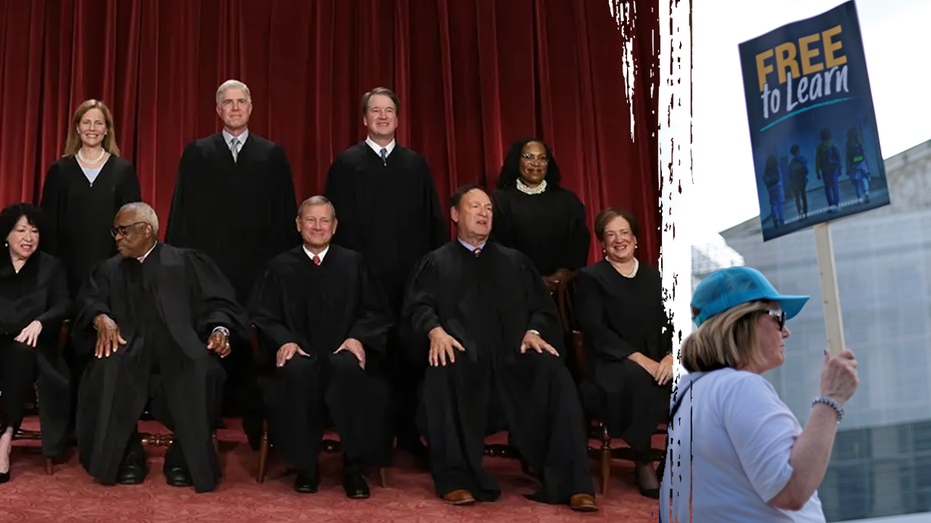- by foxnews
- 23 May 2025
How Kamala Harris can lose the cop’s badge and still look tough | Judith Levine
How Kamala Harris can lose the cop’s badge and still look tough | Judith Levine
- by theguardian
- 05 Aug 2024
- in politics

Kamala Harris has struggled to establish a clear political identity, and much of the trouble comes from her record as a prosecutor in California. In 2004, as San Francisco district attorney, she declined to seek the death penalty for a man convicted of killing a police officer (he received a life sentence). Ten years later, when the state supreme court ruled capital punishment unconstitutional, Harris, then the state attorney general, appealed against the decision.
As California attorney general - a position she held from 2011 to 2017 - Harris launched reforms such as the program to prevent recidivism among young first-time nonviolent drug offenders. The program, Back on Track, offered individual support and job training and replaced jail time with community service - a "revolutionary" idea at the time, noted Mother Jones editorial director and veteran Harris-watcher Jamilah King. Yet Harris's office opposed the release of non-violent offenders from California prisons, in defiance of a court order to reduce overcrowding.
Harris made some downright retrograde decisions as well, such as defending wrongful convictions won through proven official misconduct and, most famously, supporting legislation to fine, even lock up, parents of habitually truant students.
She tried to please both sides by calling herself a "progressive prosecutor". During the 2020 Democratic presidential primaries, she ran to the left of Joe Biden on most criminal justice issues, including solitary confinement and marijuana legalization. The anti-policing and prison abolitionist communities were not persuaded, however. Journalist and law professor Lara Bazelon wrote a damning op-ed headlined "Kamala Harris was not a 'progressive prosecutor'." Activists launched the hashtag #KamalaIsACop. Yet in 2024, even as such mistrust lingers, Republicans are painting their opponent as a "defund-the-police" radical masquerading as a cop.
Now the Harris campaign feels it's found a winner: "Prosecutor versus felon" portrays the Democrat as a tough seeker of justice, experienced in vanquishing Donald Trump's "type"- sexual "predators", business fraudsters, tax cheats. "Prosecutor had a 'cop' connotation to it when she initially ran," Democratic pollster Celinda Lake told the Atlantic. "It does not now. It has a connotation of standing up, taking on powerful interests - being strong, being effective - so it's a very different frame."
For voters worried that Democrats are too soft on crime, the image may be compelling. But for others whose support Harris needs, a prosecutor is always a cop, and a cop is not the good guy. How can she own her record honorably and show critics that she can do better?
Harris can reframe her stances on criminal justice according to the principles of restorative justice - and use that frame to define the contrast between herself and Trump.
Restorative justice (RJ) is a practice that facilitates communication between people who've been harmed and those responsible for the harm. The goals are accountability and repair. The harm-doer takes responsibility for his acts. The RJ "circle" decides how he can repair the harm. If he does so honestly, he is welcomed back into the community whose values and rules he has transgressed.
Accountability, RJ contends, is more effective than punishment. The defendant's role - and the defense attorney's job - in court is to deny guilt, even if he's guilty. Punishment often reinforces that denial and stirs resentment, especially if it's excessive, as it commonly is in the US.
As California attorney general, Harris has said, her job was to enforce the law - to convict and punish - even when she didn't endorse it. But as senator, when she had a chance to make better laws, she did - or tried to. In 2019, before a primary debate, she unveiled a 14-page plan to overhaul the criminal justice system, including ending the death penalty and solitary confinement. In 2020, she co-sponsored the George Floyd Justice in Policing Act, which would have lowered the standard of proof in police misconduct cases and restrict no-knock searches and chokeholds, the precursors of many police shootings. The bill did not pass, but Harris continues to promote it.
Last week, she released a statement condemning the killing of Sonya Massey in her home by an Illinois sheriff's deputy after she contacted the police for help. The statement called on Congress to pass the Floyd Act and concluded: "We must come together to achieve meaningful reforms that advance the safety of all communities."
Restorative justice aims for safe communities, too - not more policing - a distinction Harris has come to embrace. She's not going to defund the police. But she has spoken up for redirecting a portion of their budgets to things that enhance public safety, like education.
Trump's idea of justice is the antithesis of restorative. His answer to conflict is vengeance. "I am your justice," he declared at the Conservative Political Action Conference (CPAC) in March. "And for those who have been wronged and betrayed" - himself most persecuted of all - "I am your retribution." This statement was preceded and followed by lies, the central tactic of his MO, along with denying wrongdoing, evading responsibility, defaulting on debts, and projecting his flaws on to others - all also antithetical to RJ, whose bedrock is good faith.
In response to the constant malfeasance, Harris plays the prosecutor, whose task, she recently told CNN, is "presenting and reminding folks about the empirical evidence that shows us exactly how we arrived at this point". Trump, she added, "can't hide" from the facts.
But the crimes of Trumpism are not Trump's alone, and the harm it has done is bigger than his personal law-breaking. Here again, the language of RJ is useful: it speaks of harm, not crime. By tweaking her image from crime-fighter to harm-repairer, Harris can define justice and injustice capaciously.
After all, some things that are illegal, such as voluntary sex work, are not harmful, and not everything harmful is illegal. Trump paid a porn star to keep quiet about their sexual encounter and covered up the payments to enhance his electoral prospects. That's a crime. Then he appointed three US supreme court justices, which was legal, even though they've caused exponentially greater harm than the $130,000 payoff. Trump cheated on his taxes, a felony. Then he pushed through a massive tax cut for the rich, which has increased economic inequality and beggared the public sector: all legal.
RJ's more radical cousin, transformative justice, contends that it's not enough to hold individuals accountable. You have to change the systems that enable, condone, and promote harm, from lax gun laws to corporate giveaways to abortion bans.
I for one can't wait to see the ex-president held accountable for trying to burn the ballots of millions of citizens. But convicting Trump of treason is just day one. Released from the narrow ambit of law enforcer, more powerful than the single lawmaker, President Harris could work to restore truth to politics, repair the harms of inequity, and move toward social and economic justice, which includes public safety. She could defend democracy - not just be the good cop to Trump's bad cop.
- by foxnews
- descember 09, 2016
United Airlines flight returns to Hawaii after concerning message found on bathroom mirror; FBI investigating
United Airlines Flight 1169 to Los Angeles returned to Hawaii after a "potential security concern" aboard the plane. The FBI and police are investigating.
read more





